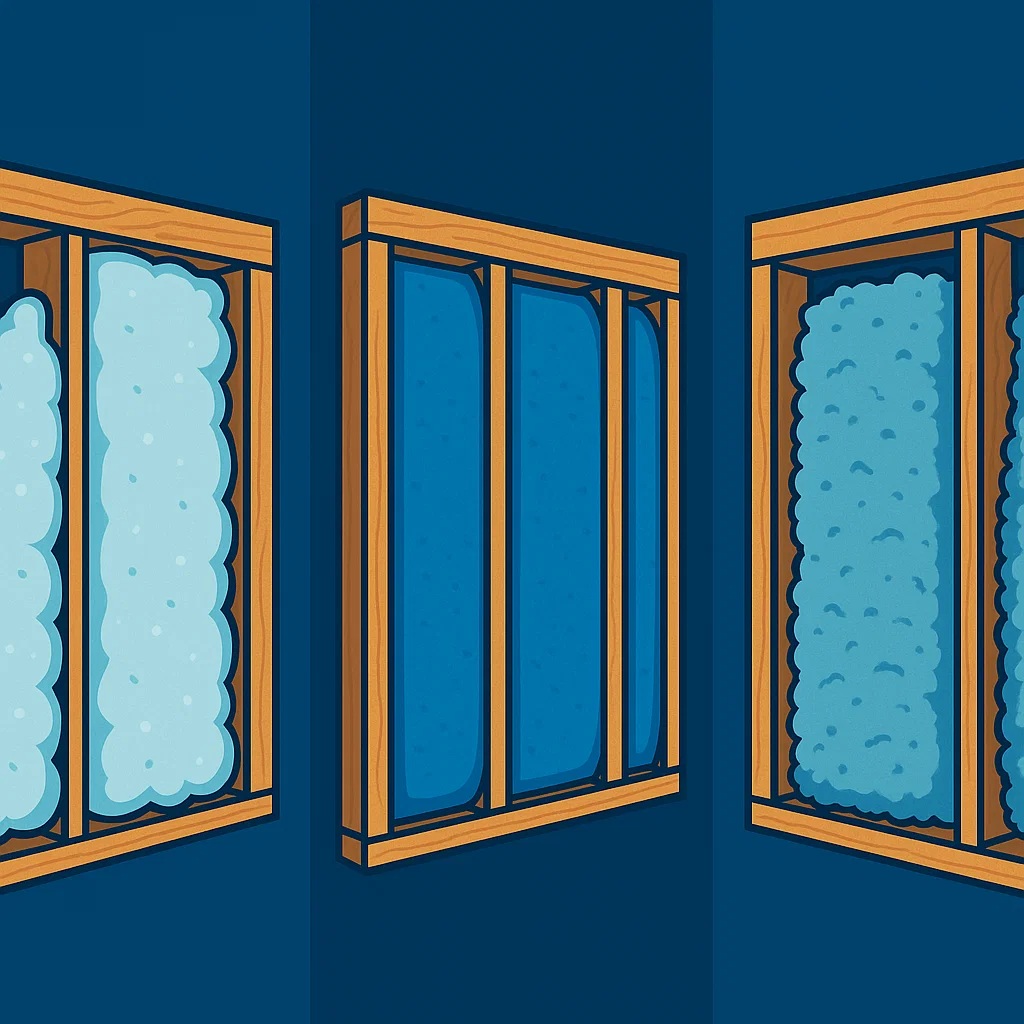
Choosing the right insulation for your Winnipeg home is a critical decision that impacts comfort, energy efficiency, and utility costs. With the harsh climate of Winnipeg, it’s crucial to choose the right insulation materials to protect your home from extreme temperatures and keep it energy efficient. In this article, we will compare three popular insulation options for Winnipeg homes: spray foam, fibreglass, and cellulose insulation. Each type of insulation material has its advantages and considerations, and understanding their differences will help you make an informed choice. Before we delve into the details, let’s explore the importance of insulation and briefly introduce the three different types of insulation materials.
Understanding Spray Foam Insulation
For homeowners seeking top-tier performance and an energy efficient product, spray polyurethane foam insulation stands out. Its ability to form an airtight seal and prevent air leakage makes it ideal for extreme climates like Winnipeg. Additionally, the higher insulation R-value per inch provides superior thermal insulation compared to fibreglass and cellulose options. Although the initial cost of spray foam insulation may be higher, the long-term cost savings from reduced energy bills can offset the investment. Spray polyurethane foam insulation is a modern and innovative option known for its excellent insulating properties. It is created by combining two chemicals that expand upon contact, effectively filling gaps and crevices to create a continuous and airtight seal. Learn more about our Spray Foam insulation services.
Exploring Fibreglass Insulation
Fibreglass insulation has been a popular choice for insulation for many years. It is made from tiny glass fibres and comes in the form of batts or rolls. Fibreglass insulation works by trapping air, which slows down heat transfer. While it’s less expensive, its effectiveness can be influenced by proper installation and maintaining a continuous barrier. However, proper installation and continuous coverage are essential to maximize its insulating properties and seal air leaks. Homeowners who prioritize a cost-effective solution and are confident in their installation abilities may find fibreglass insulation suitable for their needs. Learn more about our Fibreglass insulation services.
Investigating Cellulose Insulation
Cellulose insulation is eco-friendly as it is made from recycled paper treated with fire-retardant chemicals. Its loose-fill nature allows it to fill gaps and irregular spaces effectively, ensuring comprehensive coverage. Cellulose insulation also acts as a vapour barrier, providing moisture resistance and preventing mold and mildew growth. While professional installation is recommended for cellulose insulation, the long-term benefits in terms of being energy efficient and sustainable make it an attractive choice. Learn more about our Cellulose insulation services.
Importance of Insulation R-Value
The performance of insulation is measured by its R-value, indicating its ability to resist heat flow. Spray foam insulation has a higher R-value per inch compared to fibreglass and cellulose, providing better thermal efficiency. Choosing the best insulation for your Winnipeg home requires considering factors such as R-value, thermal resistance, environmental impact, and soundproofing capabilities. Each type of insulation material, whether it’s spray foam, fibreglass, or cellulose, offers distinct advantages that cater to specific homeowner needs.
Installation Process and Complexity
The installation process of spray polyurethane foam insulation involves spraying the foam, which expands and adheres to surfaces, requiring professional expertise. Fibreglass insulation installation is straightforward but requires careful handling and continuous coverage. Cellulose insulation installation, when blown into wall cavities, requires specialized equipment and skill.
Moisture Resistance and Vapour Barrier
Spray foam insulation acts as a vapour barrier, preventing moisture infiltration. Fibreglass insulation is not moisture-resistant and may require additional vapour barriers. Cellulose insulation has inherent moisture resistance properties.
Home Efficiency and Cost Savings
Spray foam insulation’s airtight seal significantly improves energy efficiency by reducing air leakage. While fibreglass and cellulose also contribute, spray foam offers greater potential for long-term cost savings. It’s important to consider insulation as part of a holistic approach to improving efficiency. In Winnipeg’s extreme climate, a well-insulated home can significantly reduce heating and cooling costs and enhance indoor comfort. By choosing the type of insulation material for your specific needs, you can create a more sustainable and comfortable living space for you and your family.
Soundproofing Qualities
Spray foam insulation effectively dampens sound and minimizes noise transmission. Fibreglass insulation provides soundproofing properties but may be less effective at blocking airborne noises. Cellulose insulation also offers sound absorption capabilities.
Durability and Longevity
Spray foam insulation is durable and retains its effectiveness for decades. Fibreglass insulation can last for a long time if properly installed and maintained. Cellulose insulation, when correctly installed and kept dry, also provides long-lasting insulation.
Safety First: Fire Resistance and Safety
Spray foam insulation is fire-resistant and can even act as a fire barrier. Fibreglass insulation is non-combustible, offering inherent fire resistance. Cellulose insulation is chemically treated for fire retardancy.
Insulation for Older Homes
When insulating older homes, preservation of historical integrity becomes crucial. Both fibreglass and cellulose can be retrofitted into existing structures without compromising their architectural charm. For homeowners with historical properties in Winnipeg, working with insulation services that understand the importance of preserving the home’s character is essential.
Common Installation Issues and Mitigation
Each type of insulation material may face unique installation challenges, but professional installation and proper troubleshooting can ensure effective insulation.
In conclusion, when selecting which insulation materials are right for your Winnipeg home, consider your budget, environmental concerns, desired level of energy efficiency, and any specific requirements of older properties. Spray foam insulation excels in providing top-tier performance and energy savings, while fibreglass insulation offers affordability and easy installation for DIY enthusiasts. Cellulose insulation, with its eco-friendly attributes and soundproofing capabilities, may appeal to environmentally conscious homeowners. Each type of insulation material has its unique advantages, and Above All Insulation can provide expert guidance to help you make an informed decision tailored to your home’s needs.
Contact us today so we can book your free insulation quote and install new insulation for home before our Winnipeg winter is upon us!